Country of Origin: Germany
Dog Group: Working
Origin of Name: Rottweilers get their name from the German town of Rottweil, which in turn gets its name from the Roman Empire. ‘Rot’ stands for red roof tiles and ‘wil’ for the villas, which again was a common feature in Ancient Rome. Rottweilers are called ‘Rottie’ or ‘Rott’ for short.
Shedding
A bit highMonthly keeping cost
PremiumRs. 25,000 Standard
Rs. 15,000
Size
LargeBreed Info
Life Span-11 to 12 years
Availability- Easy to get
About Rottweilers:
Rottweilers are strong, loyal and affectionate dogs and, when trained properly, can make excellent pets. Rotties are noble dogs who are protective by nature. It should be mentioned at the outset that Rotties are not ideal for first-time dog families or people who intend to train a dog to be a guard dog, especially if their training methods are aggressive. It is because of poor training methods that this breed has often been convicted of being harmful and aggressive.
Rotties are believed to have descended from the Molossus, a mastiff-like dog. Their ancestors marched to Germany with the Romans and were used to herd the cattle that sustained the soldiers. These dogs also guarded the cattle at night. In order to keep their money safe from thieves, cattlemen put their purses around the Rottweiler’s neck whilst returning home. Because they were used to herd animals much larger than themselves, Rottweilers continue to be amongst the strongest breeds the world over. To this day, they have formidable strength which they are not shy to use.
The first most noticeable thing about Rotties is their large head and strong jaw. It is often more because of their appearance than personality that Rotties are pre-judged as being aggressive. Rotties make excellent guard dogs and companion dogs alike, but need to be socialised and trained at a very early age, by a firm yet gentle and patient human. Rottweilers love people and want to be with their families as much as they can. Leaving them alone for long periods of time can lead them to become destructive. If raised with children, Rotties do very well around them.
Maintenance
Visits to Groomer-Low
Drooling-Yes
Bath-Rare
Tolerance to heat-Basks in it
Tolerance to cold-loves snow
Exercise Requirement-Lots
Hair & Coat
Under Coat-Yes
Colour-Black and Tan
Coat Type-Short
Hair Length-Short
Hair Density-Dense
Health
Rotties are generally healthy but, like all dogs, are prone to some generic and genetic conditions.
Hip Dysplasia
Bone problems
Osteosarcoma
More
Temperament
It is said that a dog’s personality is a reflection of his human companion's, and it can’t be truer than in the case of a Rottie. Rotties can be excellent companion dogs for families with other animals and even kids, provided they are socialised from a very young age and trained by a firm yet gentle master. You can’t show Rotties who’s boss by bullying them, because that’s something they’re very good at giving as good as they get .
Training & Intelligence
Rotties are warm, sincere, confident and loyal dogs. However, training and socialisation is not an option for these dogs; it is mandatory. Their intelligence and willingness to learn will ensure that you have a rewarding time training them, but be sure to use only positive reinforcement methods.
Breeding
Litter Size-6 to 9 puppies (approximately)
Complication in Breeding-No
Procreation
Rotties are generally healthy, robust dogs with few problems during breeding. They have large litters, with an average of six to nine puppies being born in each litter. The average Rottie will attain sexual maturity between six and nine months of age, but they are still too young to be mated. If you’re breeding your dog for the first time, ensure that you're consulting with a vet regularly and have adequate help during the birthing process.
Tags Rottweiler Dog Images Rottweiler Dog Price In India Rottweiler Size And Weight

 DogExpress
DogExpress

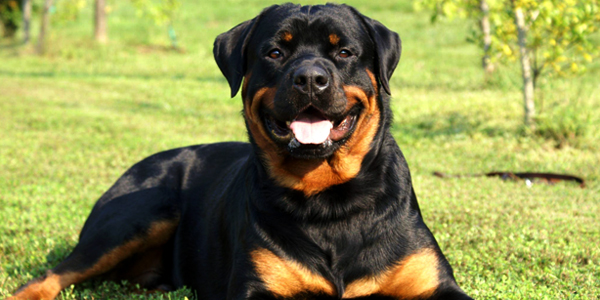
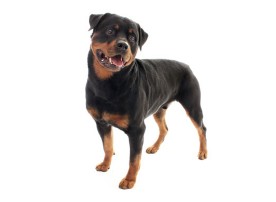
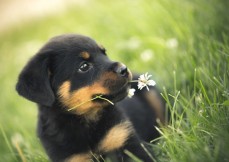
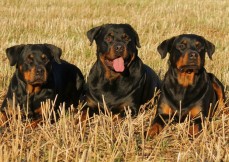
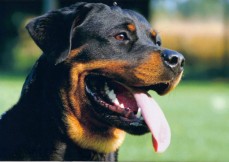
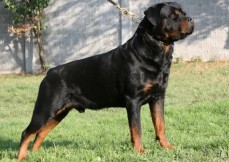












 in Chandigarh, India.
in Chandigarh, India. 
